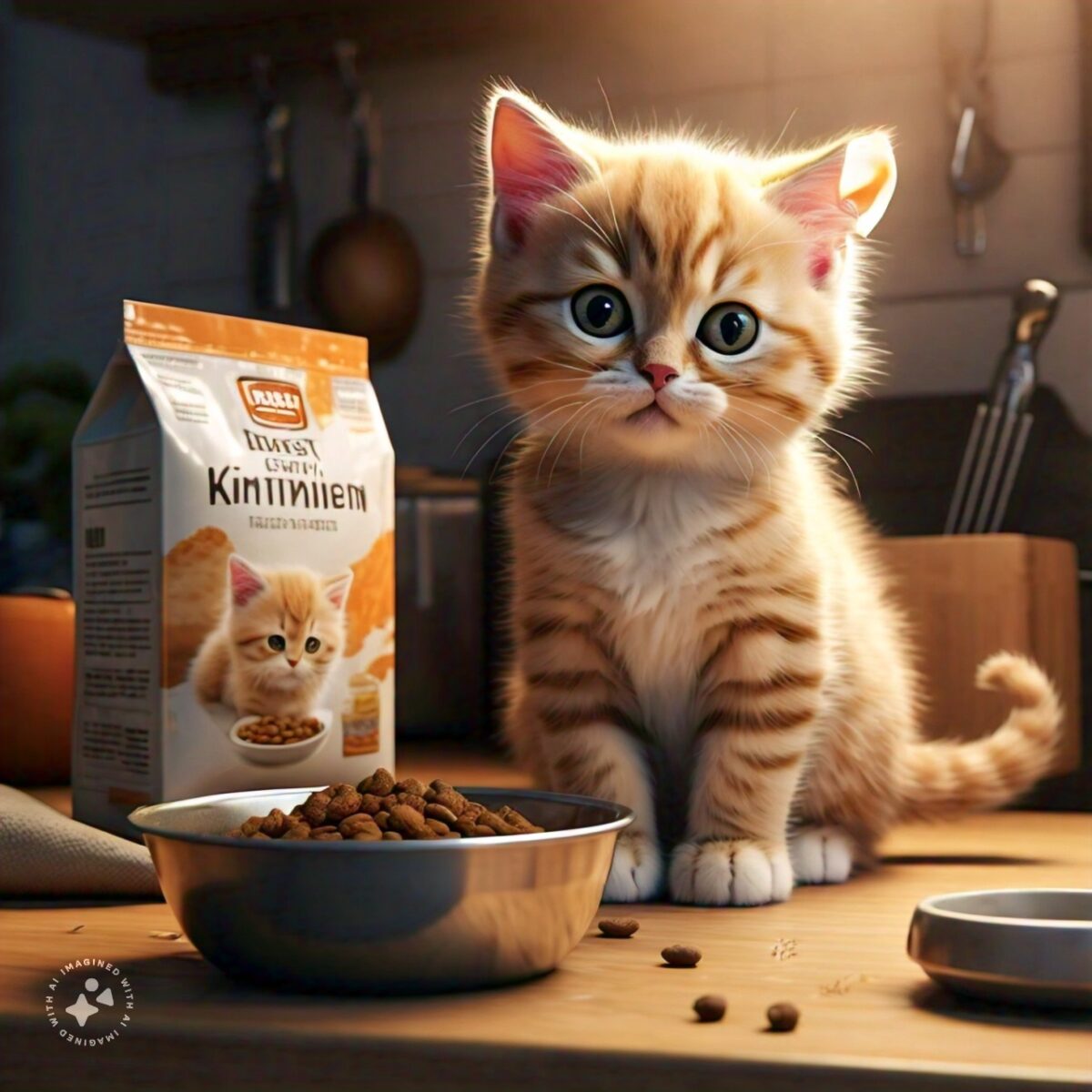Introduction to Wet Kitten Food
Feeding your kitten the correct type of food is crucial for their growth and development. Wet kitten food offers several benefits, including high moisture content and palatability, making it an excellent choice for many pet owners. In this blog, we’ll explore the advantages of wet kitten food, its nutritional benefits, and tips on choosing the best-wet food for your furry friend.
Table of Contents
ToggleBenefits of Wet Kitten Food
High Moisture Content
One of the primary benefits of wet kitten food is its high moisture content. The best Wet Kitten foods are not always good at drinking water; damp food can help keep them hydrated. Adequate hydration is essential for preventing urinary tract issues and maintaining overall health.
Palatability
Wet kitten food is often more palatable than dry food. The rich aroma and texture can appeal to kittens, encouraging them to eat more and receive the necessary nutrients for growth.
Nutrient Density
Wet kitten food tends to be nutrient-dense, providing essential vitamins and minerals in every bite. This ensures that kittens receive a balanced diet, vital for their development.
Nutritional Benefits of Wet Kitten Food
Protein Content
Kittens require a high-protein diet to support their rapid growth and muscle development. Wet kitten food typically contains more animal-based proteins, which are crucial for building strong muscles and supporting overall health.
Essential Fats
Healthy fats are vital for a kitten’s brain development and energy levels. Wet kitten food often includes essential fats like omega-3 and omega-6 fatty acids, promoting healthy skin and a shiny coat.
Vitamins and Minerals
Wet kitten food is formulated with various vitamins and minerals necessary for growth. These include calcium and phosphorus for strong bones and teeth and taurine for heart and eye health.
How to Choose the Best Wet Kitten Food
Check the Ingredients
When selecting wet kitten food, always check the ingredients list. Look for real meat or fish as the first ingredient, indicating a high-quality protein source. Avoid foods with fillers, artificial colors, and preservatives.
Consider Your Kitten’s Preferences
Every kitten is different, and their preferences can vary. Some kittens may prefer certain textures or flavors. Finding the perfect wet food that your kitten loves might take a few tries.
Consult Your Veterinarian
Before making significant changes to your kitten’s diet, consult your veterinarian. They can provide personalized recommendations based on your kitten’s needs and health conditions.
Look for Life Stage-Specific Formulas
Choose wet kitten food specifically formulated for kittens. These formulas are designed to meet the unique nutritional requirements of growing kittens, ensuring they receive the right balance of nutrients.
Feeding Tips for Wet Kitten Food
Establish a Feeding Schedule
Establishing a regular feeding schedule helps regulate your kitten’s metabolism and digestion. Feed your kitten small, frequent meals throughout the day, gradually transitioning to fewer meals as they grow.
Monitor Portions
Overfeeding can lead to obesity, which poses health risks for kittens. Follow the feeding guidelines on the wet food packaging, adjusting portions based on your kitten’s age, weight, and activity level.
Transition Gradually
If switching from dry to wet food or introducing a new brand, do so gradually. Mix the new wet food with the old food, increasing the proportion of the latest food over several days to avoid digestive upset.
Keep Food Fresh
Wet kitten food can spoil quickly if left out. Serve small portions your kitten can finish in one sitting, and refrigerate any unused portions. Discard any food left out for more than a couple of hours.
Common Myths About Wet Kitten Food
Myth: Wet Food Causes Dental Problems
Some believe that wet food can lead to dental issues, but this is not necessarily true. While dry food can help reduce plaque buildup, damp food can still be part of a healthy dental regimen if paired with regular dental care, such as brushing and dental treats.
Myth: Wet Food is More Expensive
While wet food can be more expensive than dry food, its nutritional benefits and hydration can outweigh the cost difference. Investing in high-quality damp food can prevent future health issues, saving on veterinary bills in the long run.
Myth: Wet Food Leads to Obesity
Wet food itself does not cause obesity; overfeeding does. You can prevent your kitten from becoming overweight by monitoring portions and following feeding guidelines.
Transitioning from Kitten to Adult Cat Food
As your kitten approaches adulthood, you must transition them to adult cat food. This process should be gradual, similar to introducing new wet food. Consult your veterinarian for the best timing and approach to ensure a smooth transition.
Conclusion
Wet kitten food offers numerous benefits, from high moisture content to essential nutrients, making it an excellent choice for growing kittens. You can support your kitten’s development and overall health by selecting high-quality wet food and following proper feeding guidelines. Remember to consult your veterinarian for personalized advice and monitor your kitten’s progress to ensure they thrive and stay connected to Segisocial.
FAQs
1. How often should I feed my kitten wet food?
Kittens typically require small, frequent meals. Feeding your kitten wet food three to four times daily can help meet their nutritional needs. As they grow older, you can gradually reduce the number of feedings.
2. Can I mix wet and dry kitten food?
Yes, you can mix wet and dry kitten food. This can balance moisture and crunch, appealing to your kitten’s taste preferences. Ensure the combined portions meet their nutritional requirements.
3. How do I store wet kitten food?
Unopened wet kitten food should be stored in a cool, dry place. Once opened, refrigerate unused portions and use them within 24-48 hours to maintain freshness.
4. Is wet kitten food suitable for kittens with sensitive stomachs?
Wet kitten food can be suitable for kittens with sensitive stomachs, mainly if it contains limited ingredients and is free from fillers and artificial additives. Consult your veterinarian for specific recommendations.
5. How do I know if my kitten gets enough nutrients from wet food?
Monitor your kitten’s growth, energy levels, and overall health. Regular veterinary check-ups can help ensure your kitten is receiving the necessary nutrients. Your veterinarian can also recommend supplements if needed.



